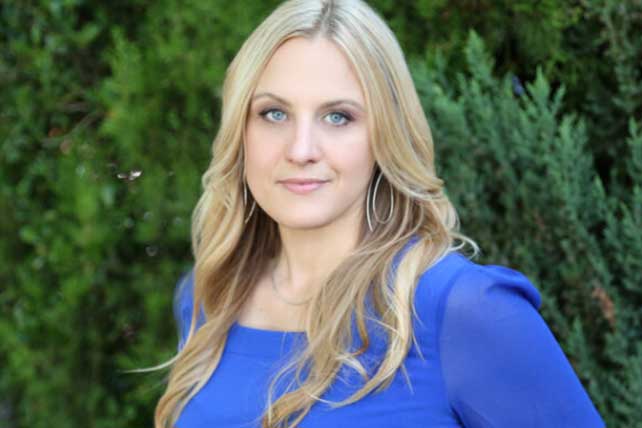(RNS) — Growing up in an evangelical home near Kansas City, Sarah McCammon was surrounded by the love of Jesus and the fear of hell.
If she messed up and failed to be a good Christian, not only could she face damnation but so could her unsaved relatives — as it was her job to evangelize them by being a faithful witness.
It was a difficult burden to bear.
“My childish disobedience, even my failure to exhibit the ‘joy of Jesus’ that should be clearly radiating from my heart, could cost my relatives their very souls,” McCammon, a national political correspondent for NPR, wrote in her new book, “Exvangelical,” which debuted Tuesday (March 19).
RELATED: Abraham Piper, Exvangelical Son of John Piper: ‘I’m Coming Out as Pro-Christian’
“Carrying that heavy truth, I put on a smile.”
Part memoir, part reporting snapshot of America’s changing religious landscape, “Exvangelical” weaves McCammon’s spiritual journey — from a home-schooler educated on “God and country” textbooks and purity culture to her departure from that childhood faith — with the stories of those who left the same evangelical subculture, often during the Trump era. The book’s title is taken from a well-known social media hashtag adopted by those who no longer feel at home in the evangelical world.
“The Exvangelicals: Loving, Living, and Leaving the White Evangelical Church” by Sarah McCammon. (Courtesy image)
Early in the book, she wrote about how the lessons she learned growing up in the church helped her navigate the 2016 campaign, when journalists were targeted by then-candidate Trump as enemies and scorned by his followers during rallies. After the election, a verse from Matthew 5 about loving those who hate you came to mind: “If you love those who love you, what reward do you have?”
That verse, she wrote, had struck her in the past as “naive.”
“I don’t like to think of myself as the sort of person who sticks around so that you can feel free to take another swing at me,” she wrote in “Exvangelical.” “And yet, when I needed it most, it was a truth that rose up from somewhere deep inside and gave me the strength to feel, for a moment, something almost like compassion for these angry crowds. Maybe all of their anger was really a lot of pain — this, I was taught growing up, is what we are called to do: to try to mimic Christ, to love generously, even at great cost. Even when people don’t deserve it. Even when they hurt us.”
Several people she interviewed for the book tell McCammon about the sense of betrayal they felt over Trump’s election. Others spoke of the fear of hell that was ingrained in them or the pressures they felt to convert their friends or other nonbelievers or how their doubts and struggles left them at odds with their families and the communities they grew up in. Some felt they had no choice but to leave because they could no longer abide how evangelical leaders treated women or LGBTQ people.
“What we are seeing is not just rebellion against parents or normal ebb and flow,” Mercer University ethicist David Gushee told McCammon. “We are witnessing conscientious objection.”
McCammon spoke to Religion New Service recently about the book, her faith journey and the contradictions at the heart of the evangelical movement in the age of Trump. This conversation has been edited for length and clarity.
Your book highlights one of the core tensions of the evangelical world — the idea that God loves you and your church loves you — but that love can be taken away at a moment’s notice if you don’t follow the rules. There’s a thin line between ‘We love forever’ and ‘You are no longer welcome.’
I spent a lot of my life trying to figure that out. All I can figure is that it’s about finding safety and certainty and security in a world that’s admittedly really scary. Nobody gives us a handbook when we’re born that says, this is where you are and this is what you’re supposed to do. There is a need to say, this is my community — and to ask, who is in and who is out? Once you start drawing those lines, you quickly start putting people outside of them.
This kind of transactional religion seems especially common among evangelicals — in part because that movement lacks the kind of liturgy, ritual and culture that binds other faiths together. So much depends on having the right beliefs.
And if you don’t feel and believe exactly what everybody else feels and believes, or you’re honest about the fact that you don’t share those feelings and beliefs — that puts you on the margins.


